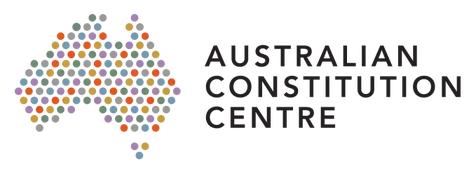Australia became a nation in 1901 when the six separate, self-governing colonies joined in a federal union to create the Commonwealth of Australia.
The Constitution summoned the Australian nation into existence and conferred a new identity on the people. Over time, Nationhood has evolved through implementation of the Statute of Westminster and the Australian Act, giving us independence from the United Kingdom.

The Coat of Arms Source: High Court of Australia
What is a nation?
A nation is defined by its system of government, its people and by its geographical boundaries. Australia became a nation in 1901 when the six separate, self-governing colonies joined in a federal union to create the Commonwealth of Australia.
The Constitution summoned the Australian nation into existence
It conferred a new identity on the people, who agreed to unite in “one indissoluble Federal Commonwealth”. Our nation is identified through our national emblems, such as the coat of arms, the Australian flag, the national anthem and our capital city Canberra.
Our nationhood is consolidated at times of war. Group portrait of World War I soldiers in camp 1914. Source: State Library of Victoria
Queen Elizabeth II
How does the Constitution contribute to our nationhood?
The people who wrote our Constitution knew that our nation would change. So, they gave the people the power to alter the Constitution through referendums. Over time, our nationhood has been consolidated in war, through immigration, economic development and the unifying influence of federal law.
How has our nation evolved?
Our Nationhood evolved in stages with the passage of the Statute of Westminster Act and the Australia Act which gave us independence from the United Kingdom.
Nationhood includes the expansion of Federal power
Commonwealth power has grown to cover things which were never thought about before Federation. By using the external affairs powers and corporations powers in section 51, the Parliament can legislate for things never contemplated by those who wrote the Constitution.


